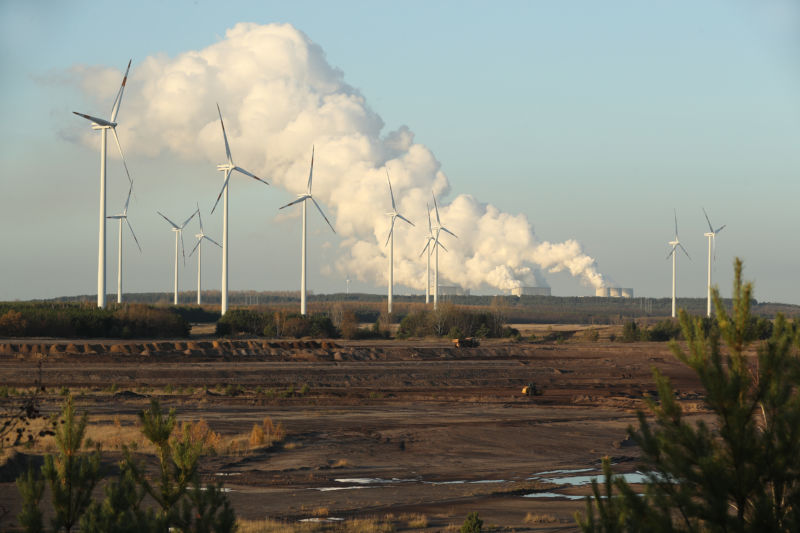
Germany’s top court struck down part of the nation’s sweeping climate law, saying it violates people’s freedoms.
By many standards, the law is aggressive, requiring the country to slash emissions 55 percent below 1990 levels by 2030 and reach net zero by 2050. The country has already trimmed 35 percent of its carbon pollution, leaving just another 20 percent to be cut over the next nine years. And that’s where the court found fault with the law, saying that it left too much of the burden to future generations.
“The regulations irreversibly postpone high emission reduction burdens until periods after 2030,” the Constitutional Court wrote in a release explaining the ruling.
The Climate Change Act, which was passed in 2019, sets reductions for six sectors of the economy, spanning energy, industry, transportation, buildings, agriculture, and everything else, including waste. Each sector has to meet an annual target, but those prescriptions end in 2030. Apart from an ill-defined end goal of net zero, the law says nothing about the period between 2031 and 2050.
The lawsuit was brought by a group of nine Germans, “some of whom are still very young,” the court noted. They claimed that the Climate Change Act would not move quickly enough to address climate change and, by not doing more, it would infringe on their freedoms and rights in the future.
A similar lawsuit in the US has been winding its way through the courts. First filed in 2015 on behalf of a group of children and teenagers, the suit accused the US government of violating the plaintiffs’ constitutional rights to life, liberty, and property by not taking stronger action on climate change. A federal appeals court “reluctantly” dismissed the case, saying the plaintiffs needed to work through legislative channels, and another appeals court refused to hear the case. The plaintiffs’ lawyers have said they would take the matter to the Supreme Court.
The German suit was brought on the basis of Article 20a in the country’s constitution, known as the Basic Law, which requires the government to protect people’s freedoms and the “natural bases of life.”
The court agreed with the plaintiffs in very clear terms. Because fossil fuels are still so entwined in daily life, and because the 2019 law doesn’t adequately prepare for significant emissions reductions after 2030, “these future obligations to reduce emissions have an impact on practically every type of freedom,” the court said.
“The verdict sends a very strong signal,” Peter Dabrock, a theologian and former chair of the German Ethics Council, told German broadcaster DW. “The freedom of the individual ends where the freedom of others begins,” he added, quoting the philosopher Immanuel Kant.
The court gave the German government until the end of next year to legislate how it plans to cut emissions beyond 2050.
https://arstechnica.com/?p=1761580

